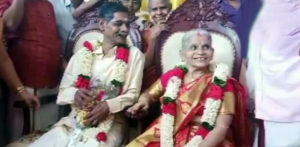“A lot of teams only accept ready-made dancers"
The UK bhangra scene continues to be evolving into 2019. The competitive scene has witnessed vibrant and unique Bhangra performances in the process.
There were also new teams and events introduced during this time.
Bhangra has become more than just a colourful dance form originating from Punjab. For many, it is their passion and considered no less than a competitive sport.
Judges, captains and experienced dancers from the scene spoke exclusively to DESIblitz highlighting some of the key points between 2017-2019.
These include the introduction of more female teams and leadership into the scene, the teams that dominated recent competitions and the consequences of their results.
We also look at the Bhangra Dancers Awards being rolled out.
More Female Power in UK Bhangra
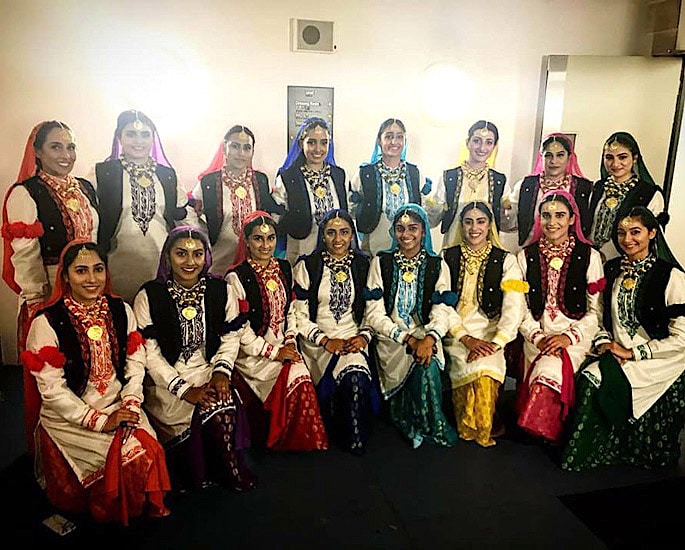
2018 was a big year for female UK Bhangra dancers and teams. It was also an important year for the females that were captaining the teams.
Ankhile Girls, Ankhi Jawan (AJ) Girls, Soneh Di Chiri (SDC) and Allaran Punjab Diyan (APD) were the four all-girls teams that competed at Bhangra Fest 2018. The latter two participated for the first time, with all these teams having at least one female captain.
Heidi Sahota who founded SDC elaborates:
“The idea behind SDC was simply to give girls in the Midlands an opportunity to dance.
“I had always been interested in competing but the opportunities in the Midlands have always been a little rare.
“This was a strong motive of mine despite the personal challenge of starting a professional team with no experience in the competitive scene.”
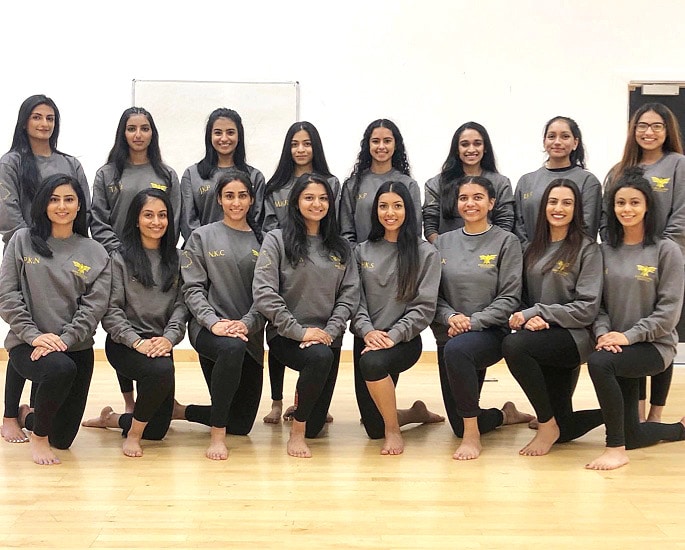
Elisha Sahota, who established APD, says:
“I first started APD in 2017 when there were no all-female Bhangra teams around that were not associated to or led by guys teams.
“I felt there wasn’t really space where girls who had passion but hadn’t been trained, could really go.
“A lot of teams only accept ready-made dancers, whereas I wanted a place where dancers with the right positive attitude could come to train.”
For these young women, starting and captaining a female team has been a challenging process. Elisha states:
“Firstly, no one even took my idea of starting a new girls team seriously because I was doing it on my own.
“Then, from mixers to other captains, no one really gave me equal respect until I proved that I meant business.
“I also feel that some dancers, even female ones, are okay with a strict male captain but not necessarily a strict female captain, because then she’s a b****right?
“And what annoyed me the most – lots of people asked me how much of the set my boyfriend had made.”
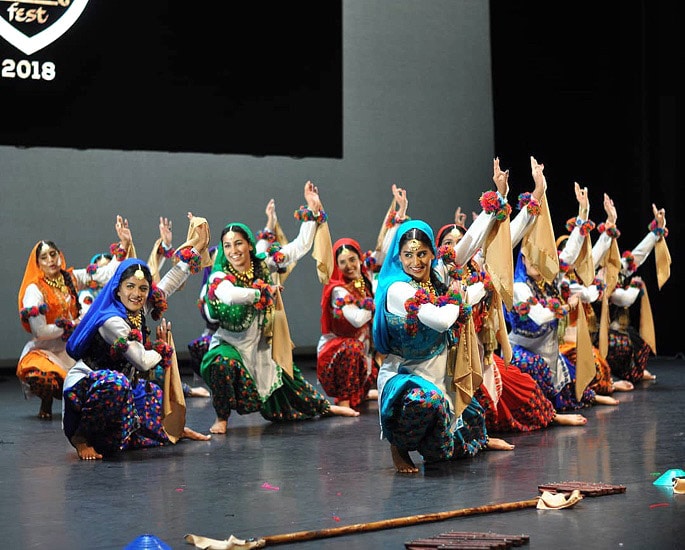
Despite AJ girls captain Ravneet Nandra describing it as her ‘best experience,’ there was a lot of pressure on her to ensure the team’s performance was competitive.
“My main goal since starting AJ was to bring 16 girls on stage.
“Last year captaining took over my whole year, as I was so determined that we didn’t withdraw from the competition.
“I made sure we had a good set with a good mixer, and a good set of choreographers. I made sure the 16 girls got along with each other and pushed each other.
“Sometimes there was a struggle in believing in myself that I could do it.
“I’d put a lot of pressure on myself to make this happen as I was the only captain, so if anyone was going to be slated or criticised, it would come down to me.
“There were a lot of ups and downs and emotions but overall, we were happy with our performance.”
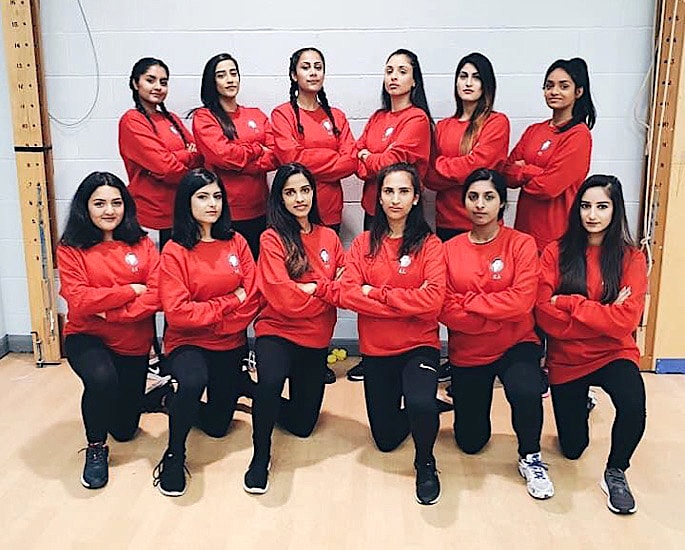
At least six females were captaining co-ed teams across The Bhangra Showdown (TBS), Capital Bhangra and Bhangra Fest competitions in 2018. In previous years, having only two or three female captains was the norm.
Ravneet believes this is a positive step for the UK Bhangra scene as she explains:
“As a coed female captain, I was more inclined to help female dancers as you know that the struggles they faced both inside and outside practices.
“For Ankhi Jawan coed, I wanted to make sure that girls were not overwhelmed by how big being an Ankhi Jawan is and not being overshadowed by the boys.
“For a lot of them, it was their first time in an external competition. I think every coed team should have a male and female captain.
“Female captains can understand the feelings and emotions that male captains can’t and vice versa.
“Therefore the dancers would feel more comfortable and less intimidated if they had more than one person to come to for advice.
“When I captained AJ as a coed, I knew the struggles that the female dancers faced both inside and outside practices.
“I wanted to make sure that girls were not overwhelmed by how big being an Ankhi Jawan is and not being overshadowed by the boys. For a lot of them, it was their first time in an external competition.”
“One of my favourite sets has been Kings 2017 – the captains were Aarthi Suresh and Sim Mangat.
“That team danced as a unit. Dancers in that team said it was one of the best performances ever with the best team, and I think having a female and male captain contributed a lot to that.”
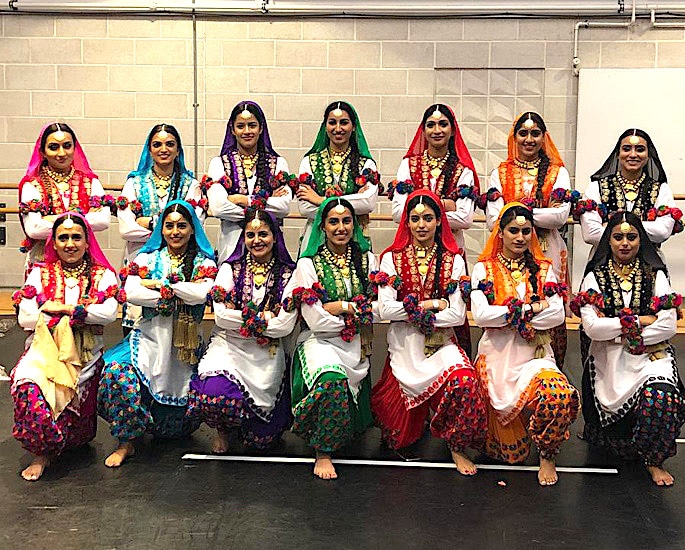
Following 2018, there are expectations of more female sides leaving their mark, and existing teams to continue sustaining themselves. Heidi said:
“The scene benefits by seeing Bhangra in a different light and having new concepts brought to the table. Female teams also bring a strong sense of empowerment and unity.
“Last year was the first time 4 girls teams competed in the UK. To be involved in just that alone was a massive privilege.
“I hope this encourages more female teams to pop up within the scene – especially within the Midlands!”
Ravneet highlighting encouragement for the girls expresses:
“I hope the girls teams keep going and not disappear amongst the boys teams.”
“The girls teams need to support and encourage each other to flourish, rather than thinking their main competition is each other.”
More Female Judges

Despite increased opportunities for female dancers, this is still not corresponding to the number of female judges in the UK Bhangra scene.
Ravneet reveals that this may change soon:
“We will see more female judges coming to the scene as there have been more girls dancing and been captains.
“Many girls around my age are stopping and that will introduce more females that do not have current affiliations.
“Every team wants as many judges that don’t have affiliations and now we will have more options with the female judges.
“I hope that girls won’t shy away from the opportunity either and I want girls in bhangra to be confident that they deserve to be on that stage and are stronger in their own right.
“I hope next year we see female judges in every competition.”

The future already seems bright for UK female judges internationally.
In fact, two well known female dancers, Ami Kaur Pandher and Jessica Garlai will be judging at Bhangra competitions abroad. These will be held in America and Singapore respectively.
Ami, who will be judging at Raniyaan Di Raunaq, the first all-girls competition in North America, mentions:
“Raniyaan Di Raunaq is a great platform for girls to be appreciated within the Bhangra circuit.
“It is also about learning from valuable feedback to teach upcoming generations of things they should embed within their performances.
“It has taken years for the Bhangra community to appreciate girls even learning Bhangra to begin with, let alone competing, which makes this competition even more inspiring to be apart of.”
“I am grateful that I will be able to witness the coming together of such talented ladies under one roof.”
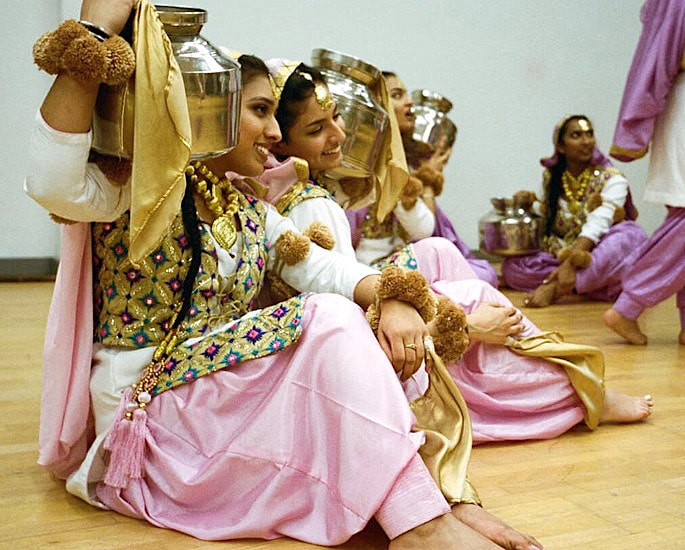
Seventy-three participants we spoke to felt they wanted more female judges across the UK Bhangra scene. Though many did agree that eligibility should be on merit. Rav Deu, a dancer from the Ankhile team said:
“If a girl of equal standing to a male judge shows interest…. should be the basic attributes of a judge.”
“Choreographed and placed with numerous sets, able to form unbiased well articulated and objective views on the scene rather than subscribing to the status quo, then said female should, of course, be provided with the opportunity to judge.”
An anonymous dancer said:
“It just so happens very few females have captained and even fewer have no affiliations.”
“To bring in more female judges merely to balance the status quo would be foolish, as that will lead to poorer quality of judging for any given competition.”
“Patriarchy within bhangra is obvious, as with the rest of society, but bringing in more female judges who aren’t of the correct calibre would create more problems than it solves.”
Double Wins for GCC
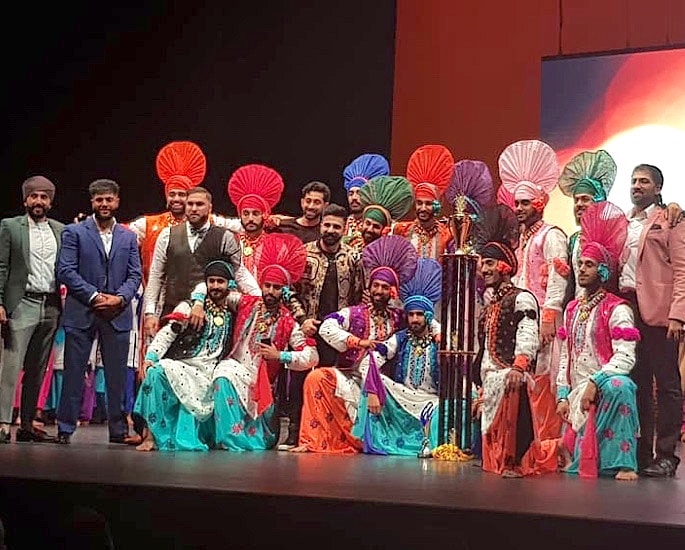
Gabru Chel Chabileh (GCC) won Bhangra Fest 2017 and then retained their title in 2018.
In terms of the university competitions, University of Birmingham (UoB) and Aston were the Midland teams winning TBS 2017 and 2018. The Leicester Bhangra team won the Capital competition in 2018, earning a place in TBS 2019.
It was at the Bhangra Fest 2018 competition that for the very the first time a team had back to back wins.
Deepak Sethi, one of the captains of GCC, describes retaining a competition as “the hardest thing you can do in bhangra.”
“I was confident when we talked last that we would win Bhangra Fest 2017. The resources that GCC has doesn’t really match across any other team.
“Name me better mixers than Hardo, Prince and Prem. Name me better captains and choreos than Sukhi, Ishan, Bhuller and myself. Even name me someone that choreos jhoomar like Krish.
“Finally, name me a 16 better than ours. There are levels to this and fortunately or unfortunately, there’s no one better.
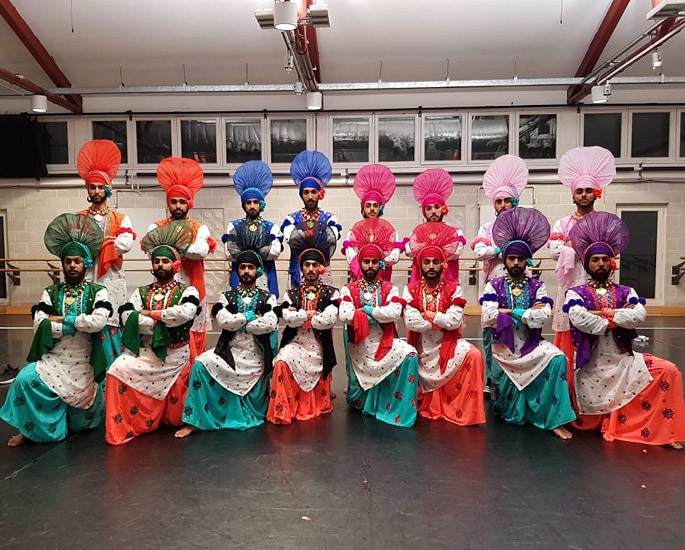
Deepak continues saying:
“I don’t think you’ll ever see this kind of run from any team in the UK ever again.
“This is where you’ve got people that have danced and/or captained UoB and Aston, winning trophies and then come to GCC, also winning trophies.”
“They are a part of the handful of dancers that have not only won in the UK over the last decade but dominated.”
“Initially, with 2018, it was to put a stamp why we are the best team in this era of UK Bhangra.
“That was the driving motivation for it. People said certain teams weren’t dancing in 2017 and were confident of winning in 2018.
“Where the confidence came from I’m not entirely sure, but it was good to put an end to that.
“I firmly believe, in a few years, when people look back at the last 8 years of UK Bhangra and they watch competitions, they’ll realise the ones that GCC didn’t win.
“This was only because those years the motivation lacked and efforts weren’t put in. That’s what those comps will be known as – the ones where GCC didn’t show up.”
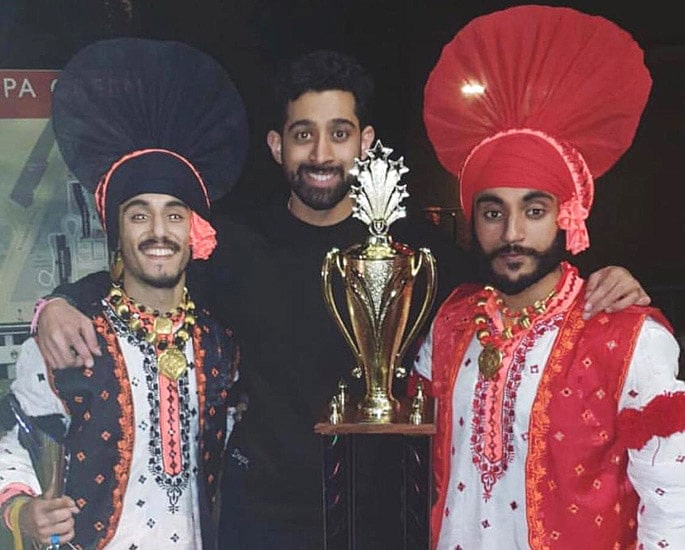
Whilst the sets of GCC set a new benchmark, there were many other memorable and unique performances seen in 2017 and 2018.
Particularly at Bhangra Fest, every team brought their own identity in their sets and stepped up from their previous year’s performance.
An anonymous dancer commented:
“2017 and 2018 was dominated by fast-paced paced hype bhangra. The likes of GCC, Aston and UoB.
“However, that does not mean to say that other sets, like Vasda Punjab and Kings who brought new folk trends, or AJ and Leicester with their unexpected drops, were not as memorable.
“Gone are the days where you would only watch the placing teams.”
“Now there are parts in everyone’s set, the way a certain team executed a move or a drop, that will be remembered and you will go back on Youtube to watch.”
TBS 2019: Is it Really a Controversy?
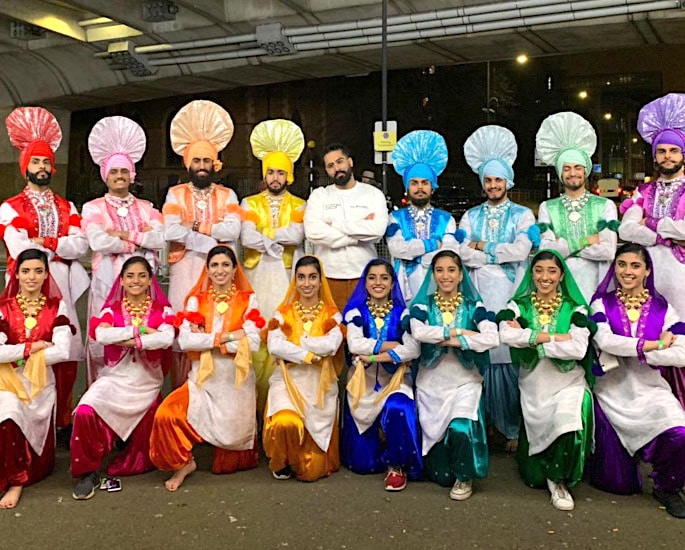
The 1st and 2nd place result for The Bhangra Showdown 2019 was much debated on social media.
Some even called this result a ‘controversy’, where Deepak Sethi, one of the judges, did not come on stage to present the trophy.
DESIblitz explores this with various judges and dancers involved. Deepak said:
“There were comments made (in the judges room) such as, ‘I looked around at the Aston dancers and I thought nah.’
“Comments like those say more about what a person wants to see than what they are watching.”
“First and the majority of second place teams in TBS 2018, 2017, 2016 and 2015 had better execution than this year’s winners.
“Every year, execution should only get better and that’s basic stuff. I think the UK scene is in trouble if we’re going to ignore huge execution discrepancies like that.
“For those people reading this that are disagreeing with the above, please realise there’s a difference between just being clean and executing to a high level.
“Clean does not equal high execution levels and vice-versa.”
Asad Afzal Khan, who has judged most competitions over the last 2 years including TBS 2019, mentioned:
“Personally I don’t see the result being a bad thing. All of the five judges have made a set in the UK and danced, and we have actually danced against each other, which is a great thing.
“All of the judges competed against each other in 2013 and 2014 and if you look at all these sets, they are different.
“So not all the judges are going to like the same stuff, hence why you have the Olympic scoring system.”
“I have no bias or affiliations with any team. And when you are judging, you have to put that bias on one side and be honest on the day. We need to respect other judges and their differences in opinion.
“’lf Aston came first on the night, despite me putting them 2nd on the night, I’d have no concerns of giving them 1st because it’s not just my decision. It’s collectively 5 judges.
“The same styles and sets have been winning since 2017, which were the fast paced/hype with drop after drop.
“This time it was quite refreshing to see a different set winning.”
“Kings had segments in their set that slowed down. You can really appreciate what was happening in the set rather than catch up with what was going on constantly.”
Watch this video of King’s ready for battle here:
Harpal Singh, who also judged The Bhangra Showdown 2019, agreed with the above saying:
“It’s very subjective. The fact that it may be deemed as a controversy is a matter of opinion by some.
“Us judges are picked by these captains and respect needs to be shown in terms of what we discuss in the judges room.
“In regards to TBS 2019, both Aston and Kings, in particular, brought their A-game.
“However, Kings came with a very interesting set, full of engaging factors and it was a pleasure to watch. It was a smart set and I really enjoyed that.
“I’m not downplaying anything that Aston did as you can see they trained very hard and were going for first place spot.”
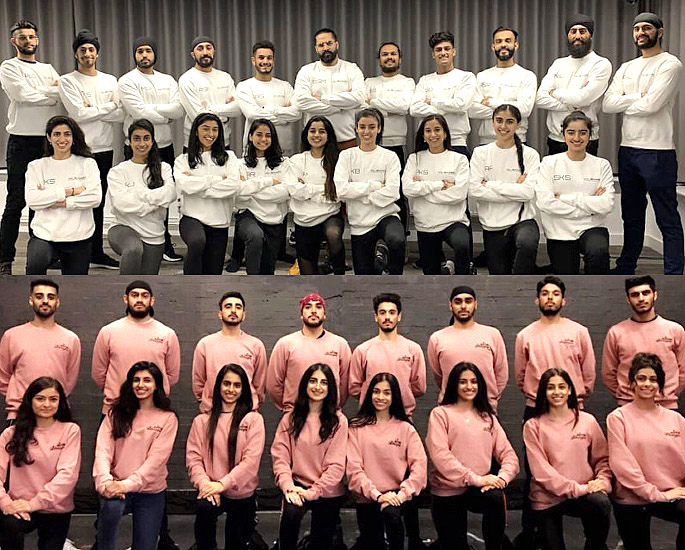
Ishan Nandra, who captained the Aston 2019 set, feels there is a level of inconsistency stating:
“There’s a discrepancy within judges and that’s a big issue that needs to be sorted for the future. Judges are ultimately the ones that dictate where UK bhangra goes.
“I also didn’t agree with a lot of feedback or the apologies was given to me by judges. You can’t have judges saying, sorry, you don’t deserve this, things went wrong or were too heated in the room.”
“Having different stage sizes is a fact not subjective. Some judges like Deepak noticed it on the day, but others didn’t. It can be argued they’re not dancing the same competition as us or as anyone.
“People do know that we’ve been winning. People don’t wanna see people win 4 times in a row – that’s never happened. When UoB won, it was still a GCC team. Everyone knows who is involved.
“Sometimes I think, why does the scene deserve our set or dancing? Aston didn’t lose a TBS, UK bhangra lost a TBS.”

Simrath Mangat, ex-captain of Kings bhangra team, was reluctant to comment on their humble win as a controversy.
“The team wasn’t involved in making the decision on the winners. We can’t comment on controversies.”
“The teams voted on a judging panel and the judging panel delivered a verdict. In the past we have gracefully accepted the judge’s decisions, we continue to do that this year.
“Whole hearted congratulations to Aston and Leicester for placing as well as all competing teams who showcased excellent hard work.”
“We focus now not on past decisions that cannot be changed, rather we focus on doing as well as we have this year at TBS2020.
“In regards to “smaller stage” let’s maybe add the centimetre measurements on to the rubric for any judges that feel this is required? Or better yet the dancers can bring out rulers for those complaining.”
“Maybe we can do weigh in’s for dancers; weight divisions and maybe height classifications?”

Olympic style judging works to remove bias by eliminating the highest and lowest marks given by judges to each team. This leaves three marks from, which an average is derived from. Harpal says:
“Each team is treated as fairly as possible with the Olympic style judging.”
“Personally, I think it’s a tried and tested model in previous bhangra competitions and should be implemented in professional competitions as well hint hint.”
Perhaps if stage size was an issue, this could be considered in the rubric and mark scheme next year. The mark scheme, as well as choosing the judges, is collectively agreed on with all the captains at a meeting.
In terms of the quality of the sets in TBS 2019, many have said that there is a disparity between teams going to win and those going for the experience. Ishan said:
“With TBS this year, if you take Aston out of the equation, I thought Imperial were the next best team.
“But honestly, I thought everyone else weres***. I think it’s sad. I want a competition where everyone is going for it and bringing their A game.
“In Bhangra Fest last year, you could really see teams were going for it and improving a lot – BPD, JJD, AJ, Vasda. But why is that happening for one comp?”
With the passing of the competition, hopefully, the UK Bhangra scene has moved forward from the alleged ‘controversy’ and can focus on future success.
Introducing the Awards
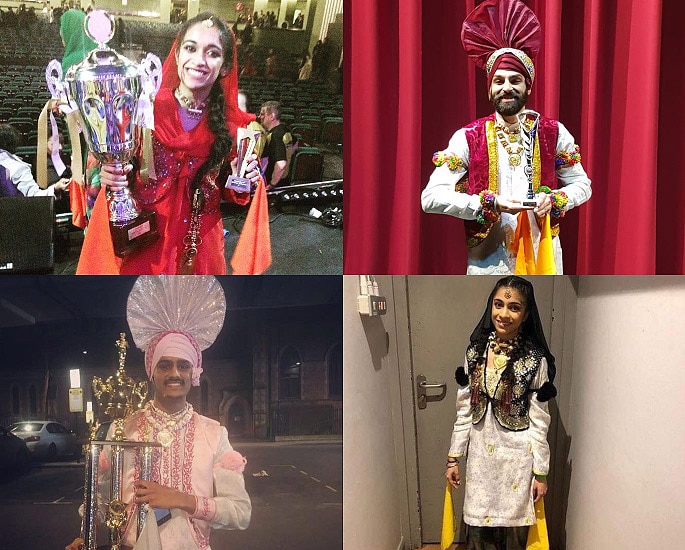
Before 2015, there was no mention in competitions about who was the best dancer.
Soon after 2015, it did roll out across all the competitions. It became nearly just as important to discuss these awards, along with placings.
The Bhangra Dancers Awards, launched in 2017, added to this, recognising talent throughout the year in a social dinner and dance atmosphere.
Categories include the ‘Best Dancer,’ ‘Best Mix, ‘Best Competition’ and ‘Best New Team.’ Nominees are expanded to not only include those that won the award at the competition but others that were shortlisted.
Winners are selected by a public online poll.

Natasha Kataria, one of the founders of the Bhangra Dancers Awards tells DESIblitz more:
“The aim of the awards show is threefold. They bring dancers together, inspire them through encouragement for their hard work and provide role models through the award winners nominees.
“They help to shed light on all the efforts put in by the dancers, teams, competition organisers contributing to the Bhangra circuit.”
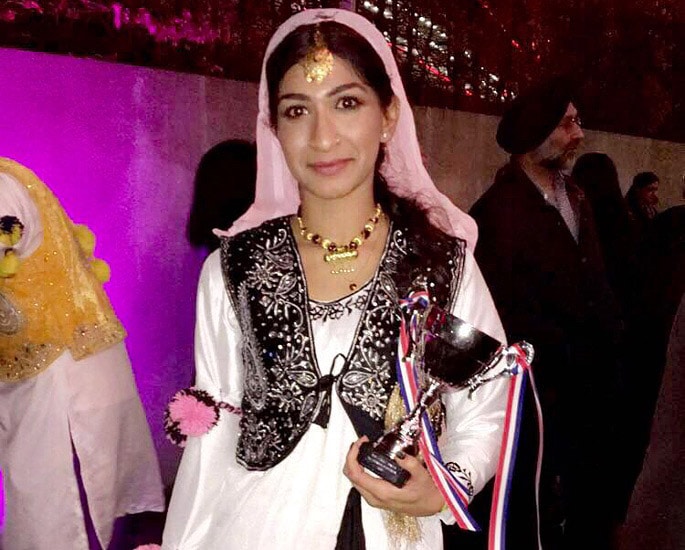
Elisha Sahota, who won best female dancer in TBS 2018, told DESIblitz:
“I think best dancer awards are a nice addition to the evening.
“Although in recent years people have become more concerned with these awards than the team goal. Best dancer awards are not something you should strive for.
“A team needs to dance as a unit. Rather than one person sticking out and the rest of the team dancing around them.
“Winning didn’t change anything for me internally, as I still felt like I had a long way to go.I did get a lot of positive and negative responses though.
“Obviously the usual ‘she doesn’t deserve it’ and some other dancers being unhappy with me about it.”
“But on the positive side, people got to know me and more importantly my team more and it instilled a bit of faith I suppose!”
Ishan, who won best male dancer in 2018 said:
“For me personally I saw the best male dancer as the icing on the cake.
“But if I don’t win the competition, then it means nothing. It always has been and will always be about winning a competition, and dancing for my team – not for myself.”
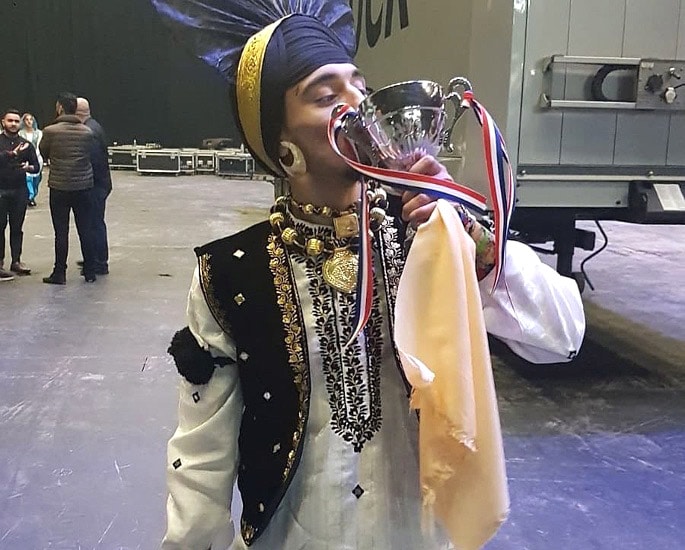
For the judges, deciding who wins these awards comes secondary to deciding the marks of teams and placings. This means that judges can be under a lot of pressure to decide under a short time frame.
An anonymous dancer said:
“Judges can’t possibly compare all the dancers when their main objective is judging teams. “So best dancer awards just go to those who they know or stuck out.”
Is this perhaps why the scene has not seen as many newcomers being nominated for best dancer awards?
Rav Deu from Ankhile calls best dancer awards, “only a good idea if all judges are to take them seriously.”
He adds:
“The problem is they seem to matter a lot more to dancers than judges at present and word of this dodgy negotiating between the panel with certain judges openly admitting their apathy is hugely discouraging.”
“Anyone with a scrap of Bhangra knowledge would raise an eyebrow on seeing where exactly this ‘honour’ has been dished out in some recent competitions.”
Asad Afzal Khan said:
“I made a point this year that I didn’t want to give the award to someone for the sake of it and it should be collectively agreed on.
“At TBS this year [2019], we didn’t really have the best Jodi and last year, I only had a best male down at TBS.”
From the opinion poll conducted by DESIblitz seventy per cent of respondents thought best dancer awards were a positive thing.
Awards can motivate and inspire dancers. But it is important for the awards to not negatively affect team performance and morale.
Bhangra is ultimately a team sport. A successful team is not made from sixteen dancers trying to win an award. But dancing as a unit to win the competition.
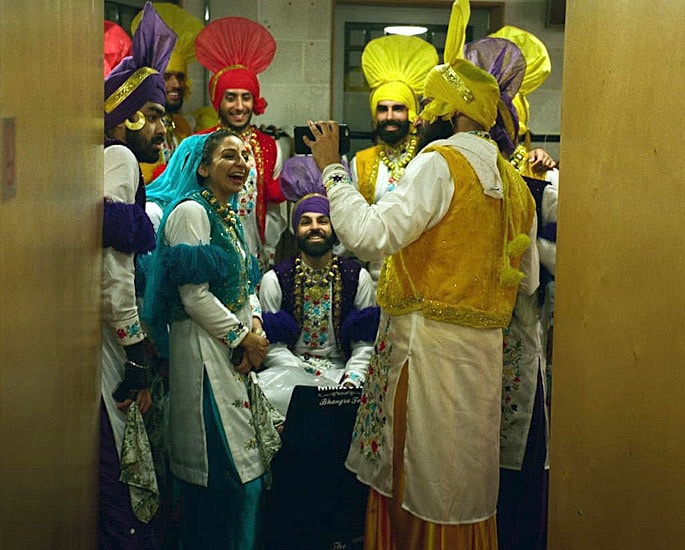
The UK Bhangra scene has seen new twists and facets. This includes a greater mix of teams competing and awards being introduced.
The UK Bhangra scene has witnessed some memorable sets over the years. This includes a range of older, established teams and newer teams. This has made the scene more competitive and exciting at the same time to be a part of.
However, it is important that dancers from the scene welcome these changes, It is also vital that dancers maintain a positive mindset to healthy competition.
Has the UK Bhangra scene reached its peak? Are politics ruining UK Bhangra?
With the passage of time, optimists will be hoping that the UK Bhangra scene continues to peak further.
For credibility purposes, it is important that UK Bhangra remains free from any potential politics, favouritism or bias.






























































